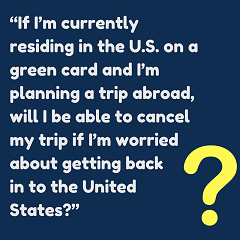Terrorism, Disease, and Natural Disasters… Should You Really Travel in 2017?
Terrorism, Disease, and Natural Disasters… Should You Really Travel in 2017?
2016 was a difficult year for travelers as countless events impacted the health and safety of people all over the world. So, should you be concerned about traveling in 2017?
While safety can’t be predicted, and traveling in uncertain times can be worrisome, Americans are not letting fears prevent them from traveling.1 Nearly 73 million Americans traveled overseas last year, up 8% from 2015.2 Along with that increase, 2016 also saw an 18% rise in travel insurance purchases for trips worldwide.3
How can travel insurance help?
Terrorist Event
With recent terrorist events around the globe, security and safety are of utmost concern. Paris, Brussels, Nice, and, most recently, London are some popular locales hit by devastating attacks.
If your trip is affected by a terrorist event, Trip Cancellation insurance can protect against financial losses due to cancellation as well as unforeseen travel delays. To receive cancellation benefits, the U.S. government must declare the incident an act of terrorism, and the traveler must have purchased the plan before the attack occurred.
If you’re still game to travel but you’re worried about medical expenses or terrorism-related evacuations, a separate Travel Medical plan may be for you.


Disease
The CDC has issued travel alerts for Zika virus outbreaks in more than 40 countries. While mainly a concern for pregnant women, Zika continues to cause worry for many traveling to areas with infected mosquitos.
While travel insurance does not cover those who wish to cancel their trip out of fear of contracting Zika, travelers with a “Cancel for Any Reason” upgrade can cancel a trip for any reason they’d like – including fears about Zika. While this benefit lets you cancel for any reason at all, it’s not cheap. But if you’re concerned, it may be worth the added cost.
Political Turmoil and Natural Disasters
In July 2016, a failed coup in Turkey caused injuries and damage to buildings. 2016 also saw major earthquakes in Ecuador, Italy, Taiwan, and Indonesia. Whether they are political or environmental, situations may arise that cause you to abandon your journey early.
There are various ways that travel insurance can protect against non-refundable losses and expenses should you need to return home. Trip cancellation polices include provisions for trip interruption and itinerary changes, and many policies now include security and political evacuation coverage.


The President’s Executive Order for Immigration
This new and fluid situation has left many travelers confused and afraid that if they travel abroad, they may be detained upon re-entry.
A travel insurance policy with Cancel for Any Reason may be worth considering as it would reimburse a portion of your non-refundable trip expenses should you decide to cancel your trip.
Finally, let’s hope the weather cooperates!
In September, Hurriance Matthew threatened the Caribbean and Southeastern United States. In March, a blizzard dumped several feet of snow in the Northeast.
Trip cancellation plans include a long list of triggers for weather-related cancellation and interruption benefits, including travel delays, missed connections, and even traffic accidents en route to the airport. You may even be covered if your destination is under a hurricane warning issued by the National Hurricane Center.
Still wondering whether you should plan that exotic vacation in 2017? Take a look at travel insurance, with its many affordable options, and you may discover that it provides the security you need to feel comfortable making those travel plans.

1 AAA, June 2016
2 National Travel and Tourism Office, 2017. (https://travel.trade.gov/view/m-2016-O-001/index.html)
3 2016 Travel Trends Report, Squaremouth, December 2016


